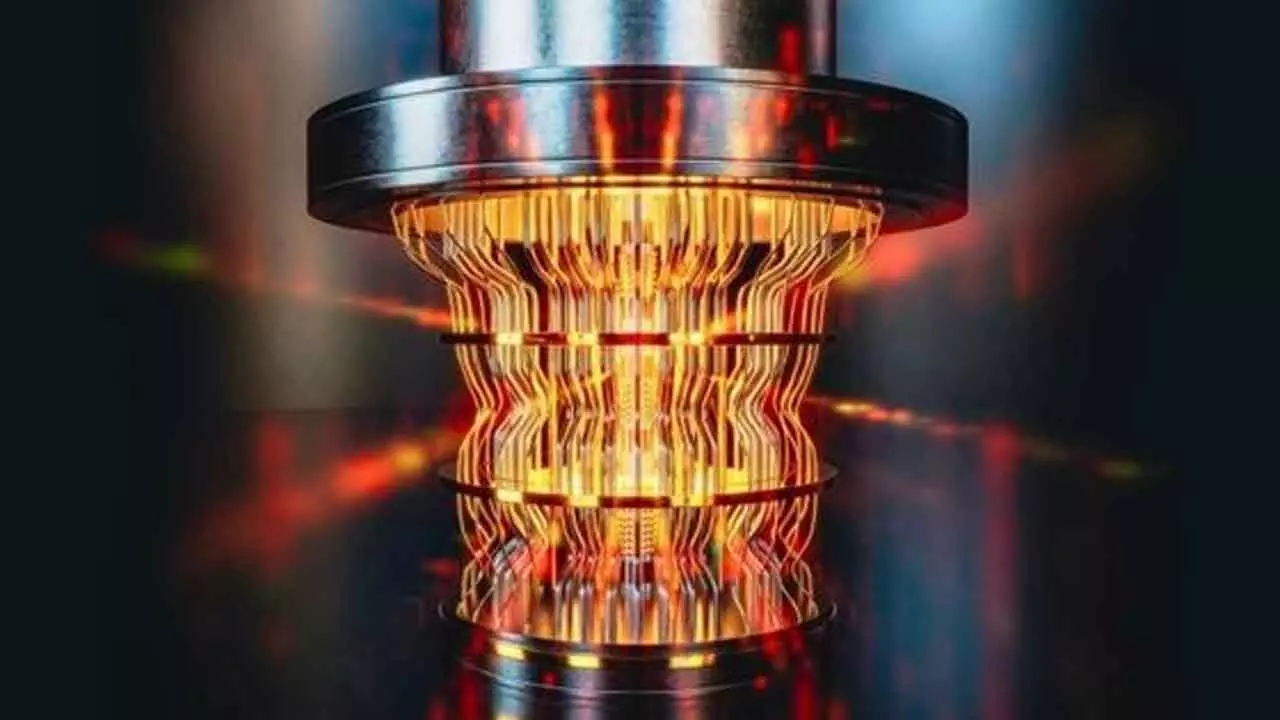Inflows Into Quantum Tech Surges 10x During 2018-24
The sector transitioning from experimental beginnings to commercial viability
Inflows Into Quantum Tech Surges 10x During 2018-24

India has to invest in quantum hardware; we have to reduce our dependencies on imports; and advancements in all areas of quantum computing can help with that - Prof Ajay Kumar Sood, Principal Scientific Adviser to the government
Investment trends in Quantum Science, Technology, and Innovation (QSTI) rose tenfold between 2018 and 2024. This is one of the findings of the first edition of the International Technology Engagement Strategy for Quantum, which the office of the Principal Scientific Adviser (PSA) to the government released in New Delhi recently.
The PSA, Prof Ajay Kumar Sood, officially unveiled the report during a podcast on World Quantum Day 2025. This report comes with a special significance because 2025 is the International Year of Quantum Science and Technology (IYQST) designated by the United Nations and member states.
Investment trends correlate with the founding of companies, showing modest funding from 2018-2020 ($1.32 million, $1.08 million, and $1.59M million, respectively) before acceleration in 2021 ($1.97 million) and 2022 ($7.55 million), a temporary decline in 2023 ($5.57 million) following the global trend, and a substantial peak in 2024 ($14.3 million), the report said. “This pattern could suggest a quantum technology sector transitioning from experimental beginnings to commercial viability, with emphasis on software applications being more explored commercially than fundamental hardware,” it said.
The report analysed startups focused on quantum technologies. It also analysed the categories they focus on and the stage they are in. These categories are according to the four verticals as described by the National Quantum Mission (NQM) and the ‘stage of startup.’ These stages are Ideation, Validation, Early Traction, and Scaling.
Data from Startup India was collected for the analysis of the sectoral categorisation of startups in the QST field.
Quantum computing startups (45) lead the sectoral landscape, followed by quantum communications & cryptography, indicating stronger market interest in these verticals as compared to verticals of quantum materials and quantum sensing.
“India has to invest in quantum hardware; we have to reduce our dependencies on imports; and advancements in all areas of quantum computing can help with that. We need to bring much more funds for startups, and de-risk the investment—which means we need to create markets for the products. And this is where all the players, be it government, private sectors, academia, or startups, play a role to create this ecosystem,” Sood said.

